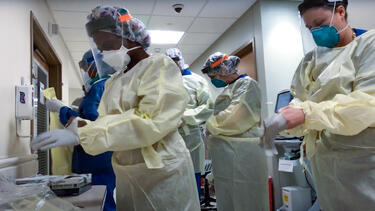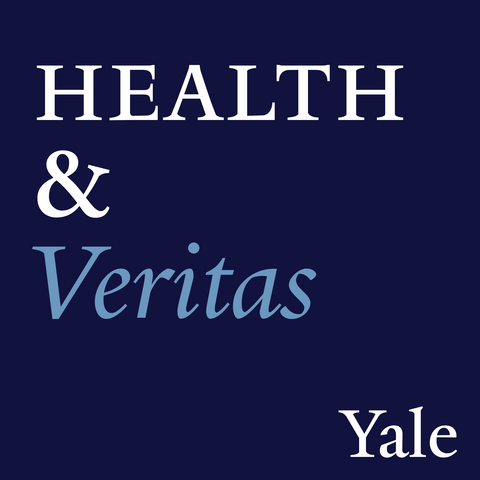Healthcare
Do the New Obesity Drugs Pay for Themselves?
Could expensive drugs like Ozempic save healthcare systems money by reducing the risk of obesity-associated diseases? A new study co-authored by Yale SOM’s Jason Abaluck suggests that other health expenses may actually increase over the first couple years of treatment.

The Keys to Trust in Public-Private Partnerships
Wariness between partners can undermine potentially impactful projects. New research co-authored by Yale SOM’s Teresa Chahine examines an ambitious project to deliver medicines across Africa and details the keys to building trust.

Medicare Helps Close Racial Gaps in Access to Healthcare
In a new study, Yale SOM’s Paul Goldsmith-Pinkham and his co-authors use the transition to Medicare eligibility to test whether universal health coverage can help reduce racial disparities in health.

Navigating a New Now: What a New York City Doctor Has Learned During the Pandemic
Dr. Charles Powell ’19, chief of pulmonary critical care for Mount Sinai, says that promising new approaches to research, diagnosis, and treatment have emerged from the devastation.
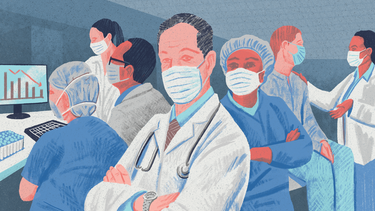
Navigating a New Now: Prioritizing a Vulnerable Community
Dr. Suzanne Lagarde ’14, CEO of Fair Haven Community Health Care, explains how she adapted vaccine delivery to meet the needs of the community even as the unrelenting pandemic took a toll on her staff.
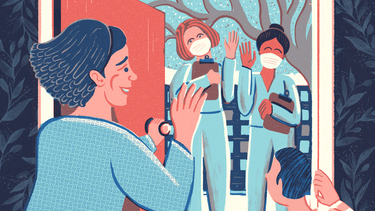
Lack of Access to Mental Health Treatment Reduces Lifetime Income
Prof. Barbara Biasi and her co-authors found that those who couldn’t access treatment for bipolar disorder paid a price over the course of their careers—suggesting that lack of access to care can worsen economic inequality.

Can Social Entrepreneurship Complement Public Health Systems?
While social entrepreneurs are often criticized for building parallel systems alongside public institutions, writes Yale SOM’s Teresa Chahine, in the case of public health they can serve as a pathway to strengthen and complement the existing public health system, especially in low-resource settings.
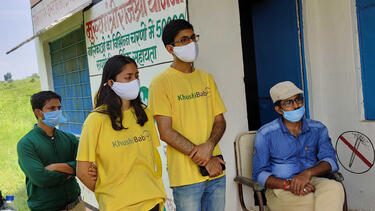
The Fight for Healthcare Equity after COVID-19
Dr. Cecelia Calhoun ’21, a Yale physician with a focus on sickle cell disease, and Yale SOM’s Dr. Howard Forman discuss the gargantuan but critical challenge of addressing the impact of systemic racism on the health of Black Americans.
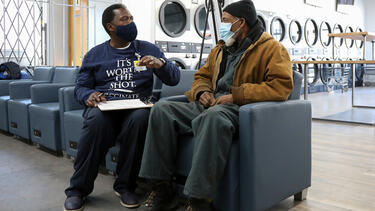
A Pandemic Landscape of Optimism and Uncertainty
Nationally, infection rates are close to their low point and many Americans are resuming their usual activities, but the more transmissible Delta variant is spreading and vaccinations are still low in some areas. We asked Yale SOM's Dr. Howard Forman where things stand now.

Uncovering Healthcare’s Hidden Climate Impact
The healthcare industry produces 8.5% of all U.S. greenhouse gas emissions as well as other forms of air pollution. Yale's Dr. Jodi Sherman says the first step to making healthcare sustainable is to understand the scope of the problem.

Video: Identifying with a Team Helps Prevent Stress and Burnout among Healthcare Workers
A Yale study conducted in the early days of the COVID-19 pandemic found that feeling like part of a team reduced reported stress and burnout—an insight with implications for how any kind of organization can weather a crisis.
